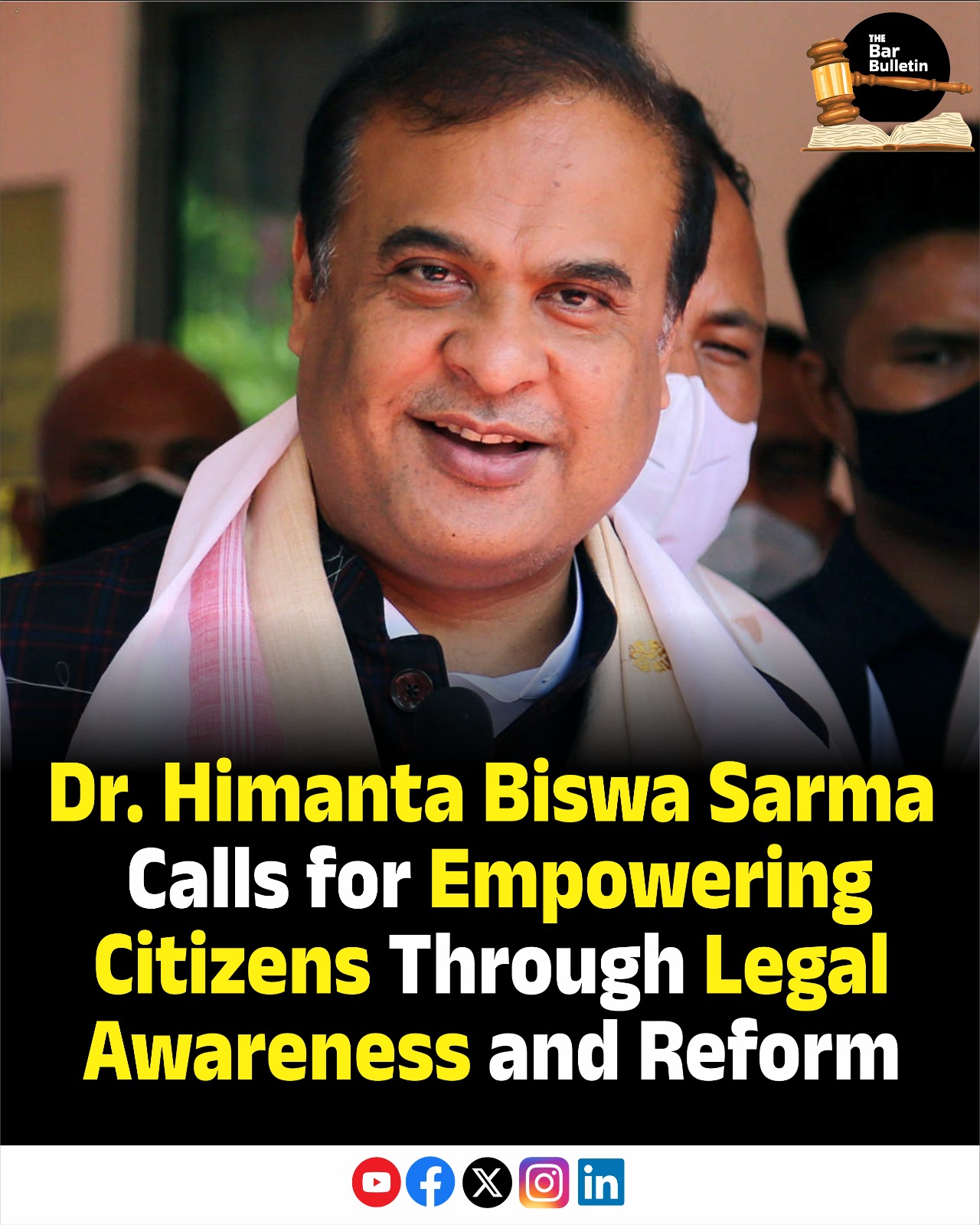Delivering the keynote address, Shri Himanta Biswa Sarma highlighted the importance of making justice accessible, inclusive, and timely for all citizens, emphasizing that the legal system must serve not only the privileged but also the marginalized, the voiceless, and those living in remote areas. He drew a symbolic parallel with the mighty Brahmaputra River, which flows through Guwahati, representing continuity, resilience, and unity, calling upon the justice system to embrace all sections of society.
He acknowledged the pivotal role of the judiciary since India’s independence as the guardian of citizens’ rights, protector of the Constitution, and upholder of democratic values. He highlighted initiatives like e-courts, online legal services, digital platforms, Naya Shruti rules, and virtual court hearings, which aim to make justice faster, transparent, and citizen-friendly.
He also praised NALSA for its transformative work, including legal aid programs, paralegal volunteer networks, and awareness campaigns, which have brought justice closer to people while reducing litigation and fostering reconciliation. Special mention was made of initiatives in prisons, schools, villages, and remote areas to empower citizens through legal literacy.
He emphasized regional concerns, including the prevention of child marriages, combating drug abuse, safeguarding the rights of tribal communities, and improving welfare for tea garden workers. He announced that Assam State Legal Service Authorities have established legal aid clinics across all 800 tea estates, marking a major step towards justice and dignity for these communities.
Further, he underlined the importance of mental health rights, gender-sensitive justice, environmental and climate justice, and youth engagement as priorities for the future of India’s justice system. Sharma called upon technology, legal awareness, and institutional reform as key tools to achieve the vision of a just, inclusive, and empowered society, aligned with the national mission of “Big Seat Bharat 2047.”
He concluded by reiterating Assam’s commitment to modernizing judicial infrastructure, strengthening digital justice delivery, and working closely with NALSA to ensure that justice reaches every citizen.

